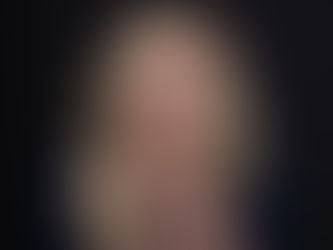Sign the petition to end the BBC Licence Fee
- Jul 26, 2017
- 3 min read

Push for an immediate common's debate on the future of the television licence.
Why is this important?
There's been considerable public dissatisfaction for quite some time:
- 70% stated that the BBC licence fee should be abolished or cut according to an ICM poll for The Sunday Telegraph in 2013.
- The Magistrates' Association has been calling for the decriminalisation of TV licence evasion for nearly 20 years, concerned that evaders are punished disproportionately.
- Up to 50 MP's demanded recently an urgent Government review of BBC funding
I resent having to pay for the BBC for the following reasons:
Unique funding or daylight robbery?
- The BBC has long advertised with phrases such as "thanks to the unique way the BBC is funded" however should that unique way been seen as a positive. Surely it is questionable that a non-government entity should be entirely funded by tax that they are independently allowed to, first, claim and, second, collect.
- The licence fee forces people to pay for self-funded services, such as itv, channel 4 and so on.
Heavy-handed bullying:
- Its business model relies upon fear of criminal sanctions to achieve success: you cannot go to prison for non-payment of your licence fee, but you can be jailed for not paying a fine.
- The BBC sent 52.8 million letters last year chasing evaders. These letters were followed with around 3.8 million visits by TV licence officer.
- More than 3,000 a week appeared before the Magistrates Courts in 2012, accused of watching television without a valid licence.
- Licence fee evasion makes up around one ninth of all cases prosecuted in magistrate courts.
- Of the 204,018 prosecution (or out of court disposal) in 2014, a staggering 24,025 were unsuccessful.
- in 2014, 39 people were imprisoned in England and Wales, for an average of 20 days each.
Burden on the poor:
- The licence fee represents a much higher proportion of income for poor households
- According to a National Audit Office report from 2002: "Areas with high evasion rates are most likely to have a higher than average proportion of younger people, low income households, and students and single parent families, and a high level of County Court judgments 50 per cent above the national average".
- by forbidding all TV programs to non-licence payers, it prevents poor people to enjoy a hobby that's virtually free or it criminalises them, in particular women with children living on welfare.
The licence fee gives an unfair advantage to one broadcaster:
- Itv has a total external revenue of £2,590 million
- Channel 4's total revenue is £908 million a year.
- UKTV (owning Dave, yesterday, etc) had £265 million in revenue.
- In comparison, the BBC has a total income of £5.066 billion of which £3.726 bn comes from licence fees.
Outdated system:
- The BBC has been funded by the licence fee since 1923.
- The current TV licence fee started in 1946
- TV licence might have been relevant when TV was in its infancy. Nowadays, it's not. Many channels offer quality programs funded by advertising.
How it works:
- The licence fee is classified as a tax since In January 2006.
- It cost each house with a TV the sum of 40p a day. In context of austerity, this is actually quite a lot.
- The Licence fee has been frozen at its 2010 level of £145.50 until 31st March 2017
- Free TV licences are available for households with a member aged over 75 and are Licences are half price for the legally blind. Those aged over 60 and in residential care homes can get Accommodation for Residential Care licences for £7.50 a year.
It doesn't have to be this way:
- Canada, United States, Australia, Hong Kong, Luxembourg, Monaco and Spain don't have TV licence fees. Presumably its national TV is paid by taxes, in which case it's paid proportionally to each individual's income.
A need of control has been expressed many times:
A BBC funded by the public needs a democratic mandate, not just the votes of a few people who enjoy nature programmes.
Bias:
The nature of the licence fee as a tax could lead to the BBC being manipulated by the government in power with the threat of withholding funds if information damaging to that government was made public. Evidence of this kind of manipulation has already been seen in the run up to the 2015 election and the proposed leader's debates.
Papers have hinted that "thousands of Top Gear fans who signed a petition demanding Jeremy Clarkson be reinstated are now threatening not to pay their TV licence fee in protest." I am one of them.
I think it's particularly relevant to address this now as this issue needs to be debated by the government before 2017, but more so because of the "Fracas", which brings the BBC's responsibility towards the general public to the forefront.




















.jpg)



Comments